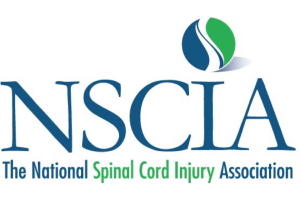Aggressive Driving
Recognition of “Aggressive Driving” As a Growing Threat
to Highway Safety
There is little question that aggressive drivers are responsible for causing a significant percentage of fatal traffic accidents. Unfortunately, various studies during the past decade clearly show that aggressive driving is on the rise. Therefore, increasing attention is now being paid to the role speeding, tailgating, red light running and other dangerous driving patterns are having in causing serious motor vehicle accidents in this country. Definitions of “aggressive driving” are not uniform. Generally, though, “aggressive driving” refers to unlawful and inherently dangerous driving patterns which are purposefully employed by some drivers despite the obvious hazards created for all other motorists or pedestrians in the vicinity of the aggressively driven vehicle. The National Highway Traffic Safety Administration (NHTSA) defines aggressive driving as occurring when “an individual commits a combination of moving offenses so as to endanger other persons or property.” The New York State Police define an Aggressive Driver as anyone who “operates a motor vehicle in a selfish, bold or pushy manner, without regard for the rights or safety of the other users of the streets and highways.”
Aggressive driving usually includes one or more of the following dangerous activities:
- Traveling at excessive speeds
- Accelerating rapidly
- Tailgating
- Running stop signs or red lights
- Making frequent lane changes to advance ahead of other traffic
- Using a cell phone while driving
- Passing cars using an emergency lane, turning lane or unpaved shoulder
- Racing other vehicles
- Braking suddenly or cutting off another vehicle as retaliation for what is perceived as another driver’s improper or discourteous maneuver.
These driving behaviors have two things in common. They are deliberate and significantly increase the risk of accidents involving pedestrians or other motor vehicles.
Aggressive Driving Is a Leading Cause of Serious Car Wrecks
There is little doubt that these patterns of aggressive driving greatly increase the risk of a serious automobile crash. In fact, NHTSA estimates that aggressive driving causes or plays a role in about one-third of all traffic crashes. For example, it is estimated that each year in this country, nearly 1,000 people are killed and approximately 150,000 more are injured in auto accidents caused by a driver who deliberately disobeyed a traffic signal and ran through a red light. Unfortunately, this hazard is only getting worse. A study released by the Insurance Institute for Highway Safety in 2000 indicated that the fatality rate due to red light running accidents was increasing three times faster than deaths from all other traffic accidents.
Speeding is also a major contributor to both the number and severity of traffic accidents. NHTSA reports that speeding is a cause in nearly one-third of all fatal motor vehicle crashes. The relationship between speeding and traffic fatalities is especially strong because excessive speed reduces the time drivers have to react, increases the likelihood of an accident, and increases the severity of a crash once it occurs. Speed is the primary variable affecting impact severity. The kinetic energy involved in a motor vehicle collision is proportional to the square of the speed at impact. Thus, for example, increasing speed by 50% more than doubles the kinetic energy at impact. A frontal impact at 35 mph is one-third more violent than one at 30 mph. Because of these realities of physics, the likelihood of serious injury or death rises disproportionally with any given increase in speed.
Aggressive Drivers Can Be Held Liable for Car Accidents They Cause in Georgia
All of the examples of aggressive driving listed above represent unlawful, unsafe and unreasonable conduct. As such, aggressive driving constitutes negligence and would support a personal injury or wrongful death lawsuit in Georgia where someone has been hurt or killed in a car or motorcycle accident caused by an aggressive driver. Where the aggressive driving is especially dangerous and creates a nearly certain risk of an accident, an inured party might also be entitled to pursue punitive damages under Georgia law.
“Road Rage” Has Now Become a Major Traffic Safety Concern
Not only can aggressive driving lead to motor vehicle accidents, but it can also lead to “Road Rage” which in turn can escalate into altercations. A growing number of road rage incidents are taking place every year, and an alarming number result in the homicide or serious injury of a participant. There have been many documented road rage incidents involving someone being shot, stabbed, beaten and run over by a motor vehicle. It is estimated that each year in this country, at least 1500 individuals are killed or seriously injured because of road rage altercations. One study by the AAA Foundation for Traffic Safety documented more than 10,000 incidents of road rage over a six year period between 1990 and 1996. These incidents led to the homicide of 218 men, women and children. In addition, more than 12,000 people suffered injuries ranging from minor injury to paralysis, brain damage and amputation.
The Relationship of “Road Rage” and “Aggressive Driving”
Some commentators use the phrases “aggressive driving” and “road rage” interchangeably, and make little distinction between the two. However, most authorities agree that the two are different concepts. Usually, “aggressive driving” is said to involve a purposeful disregard of various traffic rules despite a known increase in the dangers associated with such driving. However, aggressive driving is not usually directed toward a particular motorist and there is no specific intent to cause the injury or death of another person. Unless a fatal accident occurs, most acts of aggressive driving are punishable as traffic offenses.
In contrast, “road rage” involves deliberate behavior directed specifically toward a certain person or group of people and it can escalate into physical acts intended to cause injury to another motorist. Where an assault or murder takes place, road rage is punishable as a crime. NHTSA has a separate definition for “road rage.” It defines “road rage” as “an assault with a motor vehicle or other dangerous weapon by the operator or passenger(s) of another motor vehicle, or an assault precipitated by an incident that occurred on a roadway.”
Road Rage Assault and Civil Liability of Attacker in Georgia
In Georgia, lawsuits for personal injury can be brought against anyone who assaults another person during a road rage incident. Where fatal injuries are inflicted during a road rage attack, the victim’s family would have the right to file a wrongful death lawsuit. Depending upon the facts of a given case, Georgia law might support civil claims for negligence, assault, battery, false imprisonment or intentional infliction of emotional distress against the assailant. Where the conduct of the road rage attacker involves intentional acts of harm, the victim may be entitled to seek punitive damages.
Ways to Avoid Being Involved in a “Road Rage” Incident
Given that road rage situations often lead to someone being killed or injured, it is important to take steps to minimize road rage in other drivers and, more importantly, to avoid an escalating incident with an angry or aggressive driver. Many experts have offered their lists of suggestions. Some of the repeatedly mentioned tips for avoiding a road rage incident are these:
- Be courteous and considerate toward other drivers;
- Drive safely and obey all traffic laws thereby giving other drivers no reason to become angry;
- Show signs of appreciation to other drivers who allow you to merge, make a turn or extend other driving courtesies to you;
- Offer signs of apology when you accidentally cut someone off or make some other mistake;
- Do not compete with aggressive drivers – get out of their way and allow them to move ahead;
- Offer the right of way to other drivers who exhibit aggressive or impatient behaviors;
- Do not tailgate, accelerate past, block a lane, break suddenly, honk your horn, flash your headlights, or do other things to antagonize or retaliate against an aggressive driver;
- Do not shout any critical comments or obscenities toward an aggressive driver;
- Do not use any obscene gestures to express anger or disdain toward another driver;
- Remain as calm as possible and do not allow anger to control your actions;
- Avoid confrontation and do not respond to verbal insults, obscene gestures or uncivil behavior from an angry or aggressive driver;
- Attempt to avoid making eye contact with an angry or aggressive driver because to do so may be seen as confrontational;
- Get away from the aggressive driver and attempt to drive away from the area where the confrontation has occurred or is taking place;
- If you are followed or continued to be confronted by an angry or aggressive driver, call the police if possible and drive toward a police or fire station or other busy place where you could get help;
- If you have to stop in traffic, keep your windows up and doors locked, and leave plenty of room so that you can pull out from behind the vehicle in front of you if necessary;
- Do no exit your vehicle and attempt to verbally or physically confront an angry or aggressive driver.
Obtain Representation from an Atlanta Lawyer
Experienced in Handling Car Accident Claims and Lawsuits
Victims of aggressive driving or road rage assaults in Georgia deserve aggressive legal representation. Attorneys at Ragland Law Firm, LLC have considerable experience with the pursuit of lawsuits against aggressive drivers and individuals who instigate a road rage attack. We have actually handled a lawsuit on behalf of someone who was attacked and seriously hurt by someone in a road rage altercation. We invite you to contact us if you or a family member have been involved in a car accident or been the victim of a road rage assault.









